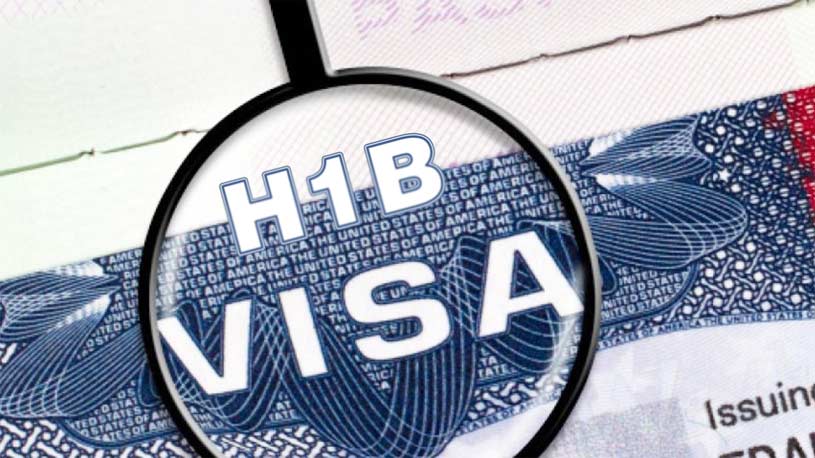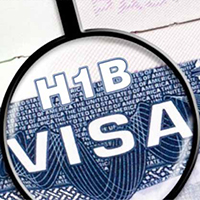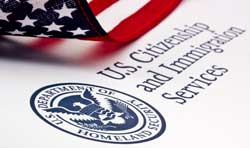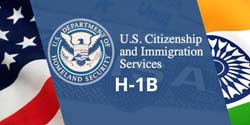Possible Alternatives to the H-1B Visa By Manju Kalidindi, Esq.
 |
Possible Alternatives to the H-1B Visa
|
|
|
H-1B cap periodThe H-1B cap period opens on April 1st every year. This year, by April 5, 2019, the U.S. Citizenship and Immigration Services (USCIS) received a sufficient number of petitions needed to reach the congressionally-mandated 65,000 H-1B visa regular cap for fiscal year 2020. On April 11, the USCIS completed the H-1B Cap Random Selection Process and reached the 20,000 Advanced Degree Exemption Cap. This year, the USCIS received approximately 201,011 H-1B petitions compared to 190,000 in 2018 and 199,000 in 2017. As of this writing, most H-1B applicants have already found out whether their H-1B petition made the lottery or not. For some applicants, this may have been the second or third attempt. What can you do if your petition was not picked in the lottery? There are alternatives to the H-1B that, for some individuals, may be viable options. Cap-Exempt H-1B PetitionsCap-Exempt H-1B Petitions
(A) is employed (or has received an offer of employment) at an institution of higher education (as defined in section 101(a) of the Higher Education Act of 1965 (20 USC 1001(a)), or a related or affiliated nonprofit entity; or (B) is employed (or has received an offer of employment) at a nonprofit research organization or a governmental research organization. Indirect employment may still qualify as cap-exempt if the employee will spend the majority of work time performing job duties at either of the above entities and those duties “directly and predominantly further the essential purpose, mission, objectives or functions” of the qualifying entity. L-1 Intracompany Transferee
To qualify, the named employee must have been working for a qualifying organization abroad for one continuous year within the three years immediately preceding his or her admission to the United States; and be seeking to enter the United States to provide service in an executive or managerial capacity for a branch of the same employer or one of its qualifying organizations. L-1B: This nonimmigrant classification enables a U.S. employer to transfer a professional employee with specialized knowledge relating to the organization’s interests from one of its affiliated foreign offices to one of its offices in the United States. This classification also enables a foreign company that does not yet have an affiliated U.S. office to send a specialized knowledge employee to the United States to help establish one. To qualify, the named employee must have been working for a qualifying organization abroad for one continuous year within the three years immediately preceding his or her admission to the United States; and be seeking to enter the United States to provide services in a specialized knowledge capacity to a branch of the same employer or one of its qualifying organizations. E-2 Treaty Investors The E-2 nonimmigrant classification allows a national of a treaty country (a country with which the United States maintains a treaty of commerce and navigation) to enter and work in the United States based on a substantial investment in a bona fide enterprise. The E-2 visa can be extended indefinitely provided all E-2 requirements are met. *NOTE: Bangladesh, Pakistan and Sri Lanka are signatories to the E-2 while India is not. E-3 The E-3 nonimmigrant visa classification applies to nationals of Australia in certain specialty occupations. In order to qualify for the E-3, the individual must be a national of Australia; have a legitimate offer of employment in the United States; possess the necessary academic or other qualifying credentials and will fill a position that qualifies as a specialty occupation. O-1
To qualify for an O-1 visa, the individual must demonstrate extraordinary ability by sustained national or international acclaim and must be coming temporarily to the United States to continue work in the area of extraordinary ability. TN The Trade National (TN) nonimmigrant visa allows qualified Canadian and Mexican citizens under the North American Free Trade agreement (NAFTA) temporary entry into the United States to engage in business activities at a professional level. To qualify for a TN, the individual must be a citizen of Canada or Mexico; the profession qualifies under the regulations; the position in the United States requires a NAFTA professional; the individual has a prearranged full-time or part-time job with a U.S. employer (but not self-employment); and the individual has the qualifications to practice in the profession. |
|
|
About the Author
|
|





 L-1A: This nonimmigrant classification enables a U.S. employer to transfer an executive or manager from one of its affiliated foreign offices to one of its offices in the United States. This classification also enables a foreign company that does not yet have an affiliated U.S. office to send an executive or manager to the United States with the purpose of establishing one.
L-1A: This nonimmigrant classification enables a U.S. employer to transfer an executive or manager from one of its affiliated foreign offices to one of its offices in the United States. This classification also enables a foreign company that does not yet have an affiliated U.S. office to send an executive or manager to the United States with the purpose of establishing one. The O-1 nonimmigrant visa is for those who possess extraordinary ability in the sciences, arts, education, business, or athletics, or who have a demonstrated record of extraordinary achievement in the motion picture or television industry and have been recognized nationally or internationally for those achievements.
The O-1 nonimmigrant visa is for those who possess extraordinary ability in the sciences, arts, education, business, or athletics, or who have a demonstrated record of extraordinary achievement in the motion picture or television industry and have been recognized nationally or internationally for those achievements. Manju Kalidindi, Esq., earned her law degree from Hamline University School of Law, in St. Paul, MN. She is a member of The Florida Bar, American Immigration Lawyers Association (AILA), South Florida AILA and South Asian Bar Association. Kalidindi is well-versed in immigration law, focusing primarily on employment and family-based immigration. She was recognized for her exceptional pro bono service by the Supreme Court of Florida in 2010 and 2015. Broward Lawyers Care announced her as the Attorney of the month in November 2012 and February 2019 for providing high quality legal representation to their clients. In 2015, Kalidindi also received a Community Leader Award from Desh Videsh Media Group.
Manju Kalidindi, Esq., earned her law degree from Hamline University School of Law, in St. Paul, MN. She is a member of The Florida Bar, American Immigration Lawyers Association (AILA), South Florida AILA and South Asian Bar Association. Kalidindi is well-versed in immigration law, focusing primarily on employment and family-based immigration. She was recognized for her exceptional pro bono service by the Supreme Court of Florida in 2010 and 2015. Broward Lawyers Care announced her as the Attorney of the month in November 2012 and February 2019 for providing high quality legal representation to their clients. In 2015, Kalidindi also received a Community Leader Award from Desh Videsh Media Group.






















